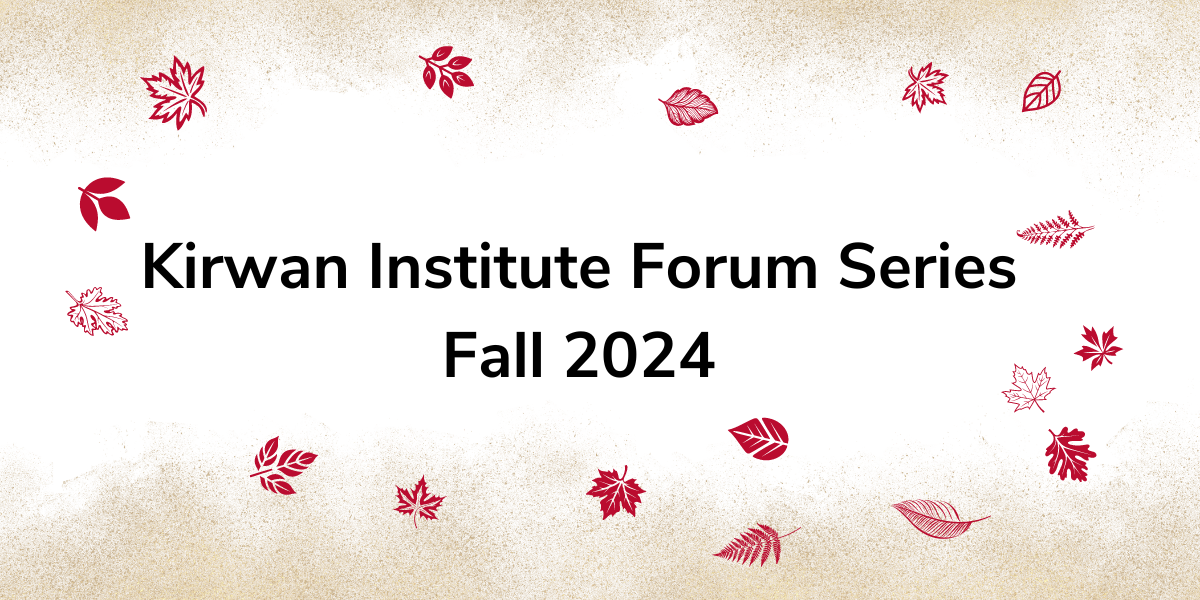This fall, the Kirwan Fall Forum Series makes a return with a co-sponsored event by the Crane Center for Early Childhood Research and Policy. See below for the overview, registration, and more information.
Time
- All events without an asterisk are from 12:00 pm - 1:30 pm.
- Events with an asterisk * are from 12:15 pm - 1:45 pm.
Registration
- Unless noted otherwise all events are hybrid and require in-person RSVP through the links provided under their titles.
- Online registration for the hybrid events can be found under the title.
Location
- In-person events will be held at the Kirwan Institute, Conference Room 101, 33 W. 11th Ave., Columbus, OH 43201. Unless stated otherwise.
Parking
- There are options to choose to park in the Gateway or Ohio Union Garage. Limited street parking is also an option nearby, but you will need to use the ParkMobile app to pay for those parking options.
Please reach out to the Kirwan Instiute Executive Assistant, Tom Wike, at [email protected] to request accommodations, as needed.
Admission to the event is free. Lunch is provided.
| Date and Time | Title (Co-Sponsor) | Speaker(s) |
* Friday, August 23rd, 2024 12:15 p.m. - 1:45 p.m.
| Politics of Race. Immigration, and Ethnicity Consortium DetailsThe Politics of Race, Ethnicity, and Immigration Consortium (PRIEC) is being hosted at OSU on Friday, August 23. The conference is generously supported by the OSU Department of Political Science and the Kirwan Institute for the Study of Race and Ethnicity. This conference seeks to facilitate meaningful collaboration between a diverse set of scholars on the politics of race, immigration, and ethnicity, from both American and Comparative political perspectives. As such, we will have panels featuring political science research related to topics of prejudice, immigration, intergroup relations, Latino politics, and more. In alignment with our commitment to amplifying voices from underrepresented populations, PRIEC does not require registration or membership fees. Learn more about the mission of PRIEC. If you are interested in attending the OSU PRIEC conference on Friday August 23, please contact co-organizer Katie Gouge for more information. |
|
Wednesday, September 11th, 2024 12:00 pm - 1:30 pm Forum recordingYou can find the forum recording here.
| Inclusive Civic Engagement Environments: Results from Theory to Practice
Abstract“If you’re not at the table, you might be on the menu.” Decision-making tables often reflect those that have historically held power, which is concerning as communities tackle big issues, such as policing. Yet, much of the research on inequitable civic engagement focuses on individual conditions, not institutional or environmental factors. As such, we asked the research question: What are the qualities of inclusive, equitable, and antiracist local civic engagement environments? We answer this question via a multi-site, engaged research project with neighborhood commissions. Using a theory-informed framework, we illustrate how city-level policies interact with commissions and organizational-level driving forces to create experiences for citizens. Interview, document, and observational data were analyzed using structural and elaborative coding and suggest there is value in using the cultural frames of strict father and nurturing parent as an interpretive tool. The strict father frame shapes the environment via norms, policies, and practices, and communicates preferences for citizen identities producing inequity. Time pressures reinforce this strict father practices. To realize environments that advance social equity, findings reveal that three conditions must be present: a) nurturing parent norms, practices, and policies that are coupled with a consensus on the purpose of participation, b) mutual understanding of past racist policies, and c) trust between actors. Seven propositions are offered for further study. In addition, we also offer practical advice for neighborhood commissions. | 
Dr. Jill Clark, Associate Professor of City and Regional Planning at the John Glenn College of Public Affairs at The Ohio State University BioJill Clark is a professor at the John Glenn College of Public Affairs, Ohio State University. Clark’s research focus is agrifood system policy and planning, centering on community and state governance of food systems and public engagement. Clark provides statewide leadership as a steering committee member of the Ohio Food Policy Network, international leadership as the past-president of the Agriculture, Food, and Human Values Society, and local leadership as an appointment member of the city and county local food board. Clark recently was awarded the 2022 Excellence in Engaged Scholarship from the Engaged Scholarship Consortium. 
Kip Holley, Principal Consultant at K Holley Consulting BioKip Holley is an independent consultant and sole proprietor of K Holley Consulting, LLC. Kip works to consult non-profit, for-profit, and governmental organizations on issues related to racial equity within organizational operations and activities, as well as facilitating dialogues and learning opportunities related to racial equity and community engagement. Kip works with people and organizations across communities, occupational fields, and cultural traditions. Before working independently, Kip was a Research Associate at The Kirwan Institute for the Study of Race and Ethnicity at the Ohio State University for 12 years where he primarily focused on evaluation and assessment research and practice with a lens of racial equity, as well as designing and facilitating organizational assessment and community engagement practice informed by racial equity research. Kip is a graduate of The Ohio State University, having received an MSW from the College of Social Work and a B.S. in City and Regional Planning from the Knowlton School of Architecture. 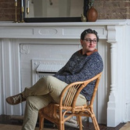
Glennon Sweeney, Community Outreach Senior Representative at the Kirwan Institute at the Ohio State University BioGlennon Sweeney is a Senior Community Outreach Analyst whose expertise lies at the intersection of land use and development policy and metropolitan segregation, with an emphasis on suburban spaces. Glennon works to build strategic partnerships that advance the Kirwan Institute’s community-engaged research strategy and serves in a translational capacity to underserved communities by providing workshops, webinars, and local history tours in order to bring the Institute’s research alive for non-academic communities. Glennon has been at the Kirwan Institute since 2012, serving as a graduate research assistant before becoming part of Kirwan’s research team in 2016. She was first attracted to and has remained at Kirwan because of the Institute’s commitment to transformative impact. Glennon received her BA in Geography and Political Science and her MA in City and Regional Planning from The Ohio State University. She is currently a PhD candidate in the university’s planning department with expected graduation in 2024. |
Thursday, September 26th, 2024 12:00 pm - 1:30 pm Forum RecordingYou can find the recording of this forum here.
| Judicial Foreclosures and Appraisal Bias’s Impact on Black Homeownership
Abstract
| 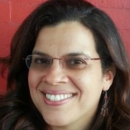
Dr. Miranda Martinez, Associate Professor in the Department of Comparative Studies at The Ohio State University BioMiranda Martinez is an Associate Professor in the Comparative Studies department at Ohio State. She was previously Associate Professor in the Department of Puerto Rican and Latino studies at Brooklyn College of the City University of New York. She has completed fieldwork in Puerto Rico and specializes in Latino and Puerto Rican Studies in addition to Urban Studies. Broadly speaking, her current research interest is in the area of economic sociology and examines racialization and predation in financial services and credit. Professor Martinez looks both at the complex processes embedding predation and devaluation of wealth in Black and Brown communities and looks at locally derived responses to a predatory economy. She has looked at local spaces of financial counsel, and the use of the "financial coaching" model to help vulnerable consumers, and is also looking at social economy spaces, such as credit unions working to create a more just, accessible financial system for low income, immigrant, and other vulnerable consumers. In looking at local economic spaces and responses to predation, Professor Martinez focuses on the kinds of subjectivities and affects that surround the financialization of daily life, especially in low income and minority communities where safe credit and banking are less available. 
Dr. Kendrick Roberson, Assistant Professor of Political Science at Pepperdine University BioKendrick Roberson is currently an Assistant Professor at Pepperdine University, where he teaches political science courses centered around American Politics as well as Race and Ethnic Politics. Dr. Roberson is also a visiting lecturer at UCLA, where he teaches Black Labor Activism. Early in his career, Kendrick attained an associate's degree in the field of Economics from El Camino Community College. During his time at El Camino College, Kendrick was a winner in a nationwide competition hosted by NASA and began 9 years of work estimating the costs of satellite systems at the Los Angeles Air Force Base, Space and Missile Systems Center. In 2013, after transferring to Pepperdine for his undergraduate career, Kendrick achieved his bachelor's degree in economics, and was accepted into Pepperdine's business school. Kendrick finished his time at Pepperdine by delivering the student address during his master’s graduation ceremony, ultimately receiving his master's degree in finance. In 2021, he received his second and third master's degrees in economics and political science from the University of Southern California (USC). In 2022, Kendrick attained his PhD in Political Science and International Relations from USC. Outside of academia, Kendrick is currently the elected Chair of the American Federation of Employees’ (AFGE) National YOUNG Committee, where he represents over 100,000 federal employees across the nation who are under the age of 40. Further, he is the Executive Vice President of AFGE Local 2429, which represents military civilians in Los Angeles, CA. |
Thursday, October 17th, 2024 12:00 pm - 1:30 pm RecordingYou can find a recording of this forum here. | What's Your Street Race? Ontological Contests, Inverted Epistemologies, Statistical Gaslighting & the Data Racial Contract in the 2020 Census & the 2024 Office of Management & Budget (OMB) Revised Race & Ethnicity Federal Standards
ABSTRACTHow can we understand the 2020 Census finding that two or more race/ethnicity is the second largest category of people as well as the adoption of a combined race and ethnicity standard in the 2024 updated Office of Management and Budget (OMB) guidelines and the absence of interdisciplinary social scientific research on inequities to inform these decisions? What is the impact of these changes for examining outcomes in Latinx communities? How can intersectionality as inquiry and praxis create a new vision for examining inequities across a variety of policy domains and inform the future of race and ethnicity data collection? Using the Office of Management and Budget (OMB) 2024 revisions to race and ethnicity standards and the 2020 Census as sites of analysis, Dr. López traces the ontological contests, inverted epistemologies, epistemologies of ignorance, aesthetic vs. authentic accuracy, statistical gaslighting, racial ventriloquy to illuminate the data racial contract as processes that have fundamentally shaped and transformed our understanding inequities by race and ethnicity. Dr. López ends with an invitation for imagining a different future that improves equity-based data collection through intersectionality as inquiry and praxis, departing from the premise that race is a multi-dimensional social status (e.g., identity narrative, street race/perceived race), ethnicity (cultural heritage status), are analytically distinct and require separate questions and are yet simultaneous categories of experience. |
Dr. Nancy López Professor of sociology at the University of New Mexico. BIODr. Nancy López is a professor of sociology at the University of New Mexico. Dr. López directs/co-founded the Institute for the Study of "Race" and Social Justice. Her scholarship, teaching and service are guided by the insights of intersectionality--the importance of examining the simultaneity of race, gender, class, ethnicity and other systems of inequalities across a variety of social outcomes, including education, health, employment, housing, for developing contextualized solutions that advance social justice. Dr. López is author of Hopeful Girls, Troubled Boys: Race & Gender Disparity in Urban Education (2003); co-editor of, Creating Alternative Discourses in the Education of Latinas & Latinos (2003), Mapping "Race": Critical Approaches to Health Disparities Research (2013); and, QuantCrit: An Antiracist Approach to Education Equity (2023). Dr. López is a Black Latina, New York City-born daughter of Dominican immigrants with a second-grade education rich in cultural wealth. She is the first woman of color tenured in Sociology and the first woman of the African Diaspora tenured in the College of Arts and Sciences (2008) and promoted to full professor (2018) at UNM. |
Thursday, October 31st, 2024 12:00 pm - 1:30 pm RecordingYou can find a recording of this forum here.
| NEW BOOK TALK: Ground Truths: Community-Engaged Research for Environmental Justice
AbstractJoin us for a presentation and discussion about how community-engaged research can and should advance environmental justice. We will draw from our recent book to illustrate how and why community engaged research contributes to EJ and how researchers can prepare themselves to do more and better research with community partners. Through a framework of justice, we will focus on how community engaged research for EJ is rooted in and reflected by examples in the field of public health.
| 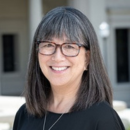
Dr. Martha Matsuoka, Professor of Urban and Environmental Policy at Occidental College BioMartha Matsuoka ’83 focuses her teaching and research on community-based organizing and social movements for environmental justice, particularly in planning and policy. Since 2015, she has served as the Executive Director of the Urban & Environmental Policy Institute, the applied community-based research and program in the department of Urban & Environmental Policy. Her work in community-based research draws on work with a wide range of NGOs including East Yard Communities for Environmental Justice, Asian Pacific Environmental Network, the Urban Habitat Program, the Liberty Hill Foundation, the Jessie Smith Noyes Foundation, and the International Women's Network Against Militarism. She currently serves on the Board of Interfaith Movement for Human Integrity, a multi-racial, multi-faith organization working for the dignity and full inclusion of immigrants and people impacted by incarceration. 
Dr. Chad Raphael, Professor of Communications at Santa Clara University BioChad Raphael (B.A., Harvard; Ph.D., Northwestern) is a Professor of Communication at Santa Clara University. He consults on communication campaigns for environmental organizations and has chaired the boards of two environmental justice organizations: the Jessie Smith Noyes Foundation and the Silicon Valley Toxics Coalition. He is also a Design Team member of the Clean Electronics Production Network and a member of the Association of Jesuit Colleges and Universities’ Laudato Si’ Commission. Chad is the co-editor and co-author of Ground Truths: Community-Engaged Research for Environmental Justice (University of California Press - Luminos), which grew out of an earlier guide he wrote for the Initiative. He has also published a research agenda for community-engaged communication research on environmental justice. His prior research on political communication encompasses environmental communication, news and politics, deliberative democracy, and games for civic learning. He has frequently co-authored articles with undergraduate students. Chad has also chaired the Communication Department, as well as committees that designed Santa Clara’s Core Curriculum and that helped draft the University’s Strategic Plan, and he led a task force on greening the International Communication Association. 
Dr. Ryan Petteway, Associate Professor of Community Health and Health Promotion at OHSU-PSU School of Public Health BioDr. Petteway thinks ANOVA GEE would be an interesting choice for a child’s name, and that BDP can tell us more about health than TPB. He’s probably drinking bougie-fied coffee in the rain right now, going to extreme measures to protect his Griffey Max 1 Freshwaters |
Thursday, November 7th, 2024* 12:15 p.m. - 1:45 p.m.
| NEW BOOK TALK: Welcome the Wretched by Cesar Cuauhtémoc García Hernández Abstract“Criminal aliens are easy to tar and hard to defend. But defending criminal aliens’ place in the United States is exactly what this book does. Migration should never be criminalized, and evidence of a crime should have no place in deciding who gets to live here and who doesn’t.”—César Cuauhtémoc García Hernández, from the book’s introduction. In his most recent book Welcome the Wretched: In Defense of the “Criminal Alien” , law professor and immigration lawyer César Cuauhtémoc García Hernández makes a powerful case for divorcing immigration law from criminal law—including abolishing so-called immigration crimes (such as crossing and re-crossing the border without the federal government’s permission), and allowing migrants who have been accused or convicted of crimes to remain in the United States as residents or citizens. | 
Dr. César Cuauhtémoc García Hernández, Gregory Williams Chair in Civil Rights & Civil Liberties at The Ohio State University College of Law BioCésar Cuauhtémoc García Hernández (last name: García Hernández; audio pronunciation) is the Gregory H. Williams Chair in Civil Rights and Civil Liberties at the Ohio State University Moritz College of Law and an immigration lawyer. He has appeared in the New York Times, CNN en Español, NPR, The Guardian, and many other venues. The author of Crimmigration Law as well as Migrating to Prison (The New Press), he lives in Denver, Colorado. |
Thursday, November 14th, 2024 12:00 pm - 1:30 pm co-sponsored by the Crane Center for Early Childhood Research and Policy
| Improving Access to Early Care and Education in the U.S. Requires Grappling with and Reconciling History AbstractResearch consistently notes the value of early care and education for children’s development, parental stability, and the productivity of the country. Despite these benefits, navigating early care and education in the United States is a challenging endeavor. There is considerable fragmentation and variability in early care and education systems, access to high quality and affordable care is limited, and pay is low for the workforce. During this research forum, Dr. Chrishana M. Lloyd will facilitate understanding about why the early care and education field is devalued and underfunded using a historical and equity lens. Dr. Lloyd will also share policy and practice recommendations to address these challenges. | 
Dr. Chrishana Lloyd Early Care and Education Research Scholar BioDr. Lloyd is a nationally recognized expert in understanding challenges facing the early childcare and education sector. Her expertise is uniquely situated at the cross-section of social science and education. Using a racial equity lens, Dr. Lloyd aims to integrate research findings and policy in ways that improve high-quality and equitable practices to positively impact communities. |
Thursday, November 21st, 2024 12:00 pm - 1:30 pm | Building and Brokering: Solidarity Processes in Multiracial Coalitions AbstractSocial justice organizations often espouse multi-racial solidarity as a value but struggle with putting this value into practice. How can organizations build bonds and extend solidarity to other organizations and activists across different racial identities? In this study, I espouse a theory of racial caucus organizing that discusses the opportunities and challenges of operationalizing solidary for racial groups within multi-racial coalitions. Importantly, race-based caucuses require more than just making space for people of different identities; rather, they require specific forms of organizational structure. I argue that the process of race-based caucus organizing requires establishing a power-shifting politic and praxis, exchanging resources, and fostering intersectional solidarity within racial groups. The findings in this study arise through a year of relationship building, observation, participation, and in-depth interviewing with Houston in Action (HiA), a non-partisan multi-racial coalition in Houston, Texas. | 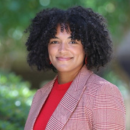
Dr. Elizabeth Jordie Davies, Assistant Professor of Political Science at the University of California Irvine Bio Dr. Elizabeth Jordie Davies is an Assistant Professor of Political Science at the University of California Irvine. She is also an affiliate faculty member of the UCI Culture and Theory Ph.D. Program. Jordie’s research and writing interests include Black politics and political thought, US social movements, solidarity, and Black feminism. Her research agenda focuses on the influence of social movements on political attitudes, activism, and political participation. Jordie’s book project proposes the framework “Alienated Activism” to describe the emergence of the Black Lives Matter movement. |
